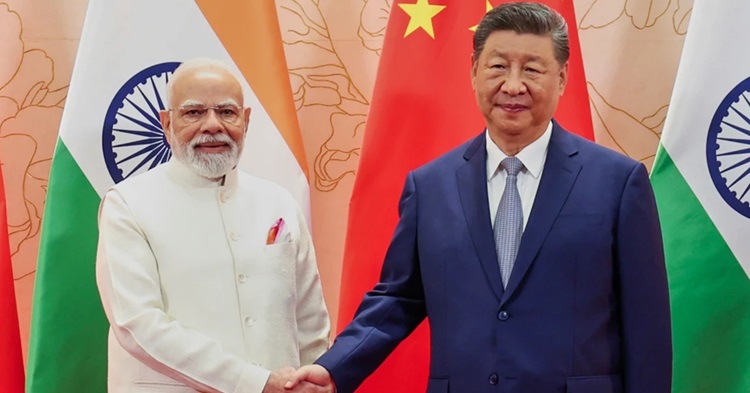Xi, Modi pledge to address border issues, strengthen ties at Tianjin meeting


Chinese President Xi Jinping and Indian Prime Minister Narendra Modi on Sunday committed to resolving border disputes and enhancing cooperation as they met ahead of a regional summit in Tianjin.
Modi’s trip marks his first visit to China since deadly border clashes in 2020 strained relations between the two nations. He is attending in connection with India’s membership in the Shanghai Cooperation Organization, a regional political, economic, and security bloc founded by China.
In his opening remarks, Modi said ties with China have moved in “a meaningful direction,” noting there is now “a peaceful environment at the borders after disengagement." He also stressed “the importance of peace and tranquillity on the border areas for continued development of bilateral relations,” according to India’s Ministry of External Affairs.
Xi, meanwhile, said he hoped the meeting would “further elevate” and “promote the sustained, healthy and stable development of bilateral relations,” state broadcaster CCTV reported. He added that the two sides should “not let the border issue define the overall China-India relationship," emphasizing that economic growth must be their focus.
“As long as they remain committed to the overarching goal of being partners, not rivals, and providing development opportunities, not threats, China-India relations will flourish and move forward steadily," Xi said.
Russian President Vladimir Putin also arrived in Tianjin on Sunday and is expected to meet with both leaders in the coming days.
The talks follow Chinese Foreign Minister Wang Yi’s visit to New Delhi earlier in August, during which both sides pledged to resume border negotiations, reintroduce visas, and restart direct flights.
Wang’s trip coincided with U.S. President Donald Trump’s decision to impose 50% tariffs on India for buying Russian oil, but India had already been working to mend ties with Beijing. On Sunday, Modi underlined that “India and China both pursue strategic autonomy, and their relations should not be seen through a third country lens,” according to India’s foreign ministry.
This year, both governments have increased official exchanges and discussed easing trade and border restrictions. In June, Beijing allowed Indian pilgrims to visit holy sites in Tibet.
